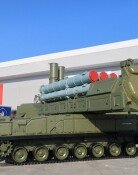[Editorial] Nothing Left but Reason and Reform
[Editorial] Nothing Left but Reason and Reform
Posted September. 05, 2001 08:37,
With the passing of the parliamentary motion to dismiss Minister of Unification Lim Dong-Won, there are two key points that President Kim Dae-Jung and key figures in the Millennium Democratic Party need to seriously come to grips with. The first is that no matter how noble the cause -- and how much of a marquee policy -- reunification is for the government, there is an all-too-real `wall` in society that opposes and expresses dissatisfaction with the approach and progress of the current administration`s efforts.
In the course of forcibly implementing the so-called Sunshine Policy, driven partly by President Kim`s own personal conviction and partly by the desire to create tangible results for the `minority government`, the government has admittedly gained widespread acclaim, both domestically and abroad. At the same time, there was also an equal, growing voice of opposition and criticism. The recent passing of the dismissal motion against Unification Minister Lim has shown us that the forces in the Assembly which represented the opposition`s voice were actually the majority in this case. If this reality is ignored or rejected, others may potentially look upon it as challenging the fundamental principle of parliamentarism.
The second point that President Kim and MDP leadership must recognize is that they are in fact in a lame-duck situation and therefore must realistically adapt their strategies in accordance with their predicament. If they fail to do so, the President and the Millennium Party will face not only greater difficulties for themselves but also risk inflicting a deep wound in the foundational fabric of the nation, economy and society. Accepting the lame duck situation, they must with reason and a balanced approach try to regain public favor while adopting a reconciliatory position towards the main opposition party.
This administration began as a `minority government` and seems to have constantly struggled since. In particular, when the general elections in April 13, 2000 resulted in a minority ruling party and a majority opposition party, the administration further lost its sphere of influence and mobility. Perhaps to its own demise, the administration chose to cling onto its ties with the weak minority party ULD instead of beginning dialogue with the majority opposition party, and spent its efforts to create a negotiating organization with the ULD by virtue of party transfers of existing parliamentary members. But in the aftermath of the friction with the ULD, all of those efforts have come to nothing.
Now, the administration faces severely limited choices. President Kim and the ruling party must completely forget about playing the `number and power` game and resort to completing its remaining tenure through political ability and open dialogue. There is a movement within the Chong-Wa-Dae and the ruling party to conduct `politics directly with the people`, but this promises to be a dangerous notion. That kind of a statement would not have been easily made had the administration honestly considered how the people are now even more divided than ever by regional sentiment. It may be possible to claim such a thing for a local civic group, but this type of politics that chases after public opinion will not only be in the rebounding of the administration but also may give rise to greater confusion and rifts within the government.
The reform of the national government was promised by none other than President Kim himself. Now with mass resignations in hand, President Kim must peer out into history with a wide-angled view of the entire nation. And with an objective attitude, he should redesign the make-up of the MDP and Chong-Wa-Dae from scratch. His goal should be to create the new cabinet line-up in such a way that the people can agree with and perhaps even be inspired by him, as the current administration walks down the final stretch of its tenure.
Headline News
- Ukraine says N. Korea’s first troops arrive in Kursk
- N. Korea begins installing barriers on Donghae Line after 'bombing show'
- K-defense operating profit expected to jump by 200% in Q3
- Seoul City launches DDP rooftop tours, celebrating 10th anniversary
- Ahn Jung-geun’s historic writings return to Korea in 15 years







